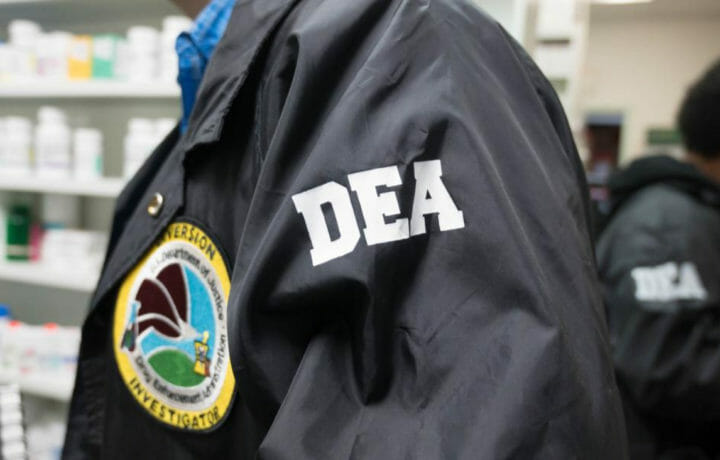The Drug Enforcement Administration’s mission is to uphold the United States’ laws and regulations regarding controlled substances. Founded by President Nixon in 1973, their mission means doing everything from monitoring prescription medication and infiltrating gangs to analyzing evidence and supporting drug education.
Top Seven Facts About the Drug Enforcement Administration (DEA)
DEA agents are famous in pop culture, being portrayed everywhere from shows like Breaking Bad to movies like Con Air and License to Kill. While those shows are entertaining, here are a few facts about the DEA you probably won’t learn from watching TV.
1. Their annual budget
The DEA has nearly ten thousand employees and a budget of $3.28 billion, as of 2021. While that might sound like a big budget, it’s small potatoes compared to the cost of drug abuse in the United States, which was estimated at $3.73 trillion for 2019.
2. They oversee both legal and illegal drugs
Prescribers from your family physician to veterinarians needs a DEA-issued license and number to prescribe controlled substances. Prescription drug abuse is a major issue in America, which is why the DEA actively works to mitigate the problem by monitoring prescribers.
3. Education is a big part of their mission
An ounce of prevention is worth a pound of cure, which is why a large part of the DEA focuses on educating people of all ages about the dangers of illicit drug use, prescription drug abuse, and the health consequences of using and abusing drugs. They inform communities about drug trends in their area and work with local stakeholders to prevent drug use through education.
4. They’ll help you dispose of unneeded medication
As part of their mission to prevent druge use and abuse, the DEA sponsors a National Prescription Drug Take Back Day. The most recent take back day saw over 720,000 pounds of unneeded medication accepted at over five thousand sites. Over its lifetime, the program has removed nearly 16 million pounds of prescription medications.
5. They have a say in their portrayal in pop culture
It may or may not surprise you to find out that the DEA has controls and contracts in place for how they’re portrayed in the media. In 2019, nearly 200 pages of contracts were obtained through the Freedom of Information Act, covering dozens of projects including documentaries and dramas. The contracts have specific rules regarding the projects, including denying the production company access to certain areas, disallowing video of certain situations to be used at all, and giving the DEA control over the final cut. They also reserve the right to perform background checks on individuals involved and may deny access based on the results.
6. Reciprocity and security clearances
Although security clearances are based on a job and not a person, clearance reciprocity between agencies allows employees to move between positions without the need to go through the entire security clearance process again. The DEA has procedures for transferring security clearances, but going through the process of reciprocity can still take a long time.
7. They’re not just in America
The DEA has 92 foreign offices spread over 69 countries, including locations in South Africa, Turkey, Russia, and Colombia.
Working for the DEA could mean working as a special agent enforcing drug laws, being a forensic scientist working to solve crimes, or using research skills to analyze data and help make decisions.




